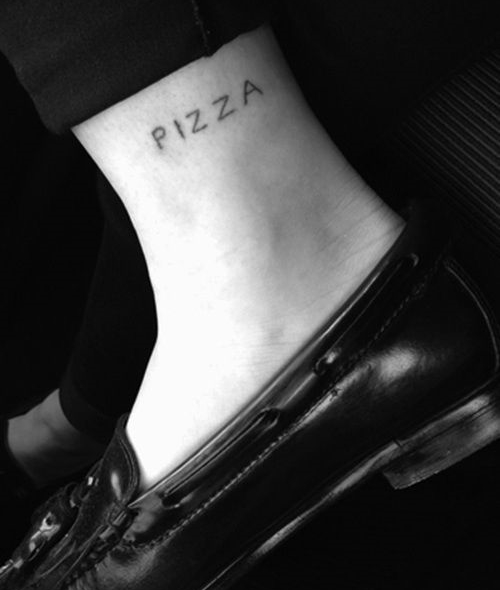Not sure where you stand with the moo juice? Personally I never really caught on to the idea of ingesting lukewarm white liquid that spurts form a cow's nips.
Is it because I grew up on a farm milking cows myself as a kid and associating the white foamy squirts with other products of elimination? OR is it instead because... I am in fact not an infant cow?
Hard to tell now. So many dairy-free years have come and gone. The closest I ever came to appreciating milk as a kid was when said white liquid was served to me freezing cold and mixed with LOTS of chocolate powder (Hello Milo).
But here we are now, adults-in-the-making, scientists at heart, with ALL THE POWER to decide what goes into our bodies.
What follow is my lowdown on what the world thinks is the only source of calcium ever known to man and beast. MILK : the stuff in the plastic cup of every white-toothed child on TV that plays outside without ever breaking a bone. Right?
Not very right. It turns out the evidence for this claim is shockingly weak. To my knowledge, research has failed to find a positive correlation between milk consumption and bone health. A study published in JAMA Pediatrics last year followed almost 100,000 men and women for nearly two decades. Subjects were monitored to see if their milk consumption as teenagers was associated with a reduced chance of hip fractures later in life. And...it wasn't. Even more recent research shows that milk consumption is associated with an increased risk of fractures in women.
Amy Lanou, PH.D., the senior nutrition scientist for the Physicians Committee for Responsible Medicine in Washington D.C, and author of Building Bone Vitality (McGraw-Hill; 2009) says:
“The countries with the highest rates of osteoporosis are the ones where people drink the most milk and have the most calcium in their diets. The connection between calcium consumption and bone health is actually very weak, and the connection between dairy consumption and bone health is almost nonexistent.”
And still, humans are the only species that continue to drink milk after being weaned.
Are we stupid?!
Yes. And No. Milk is chock-full of important nutrients. Not a surprise - it's designed to grow a calf into a fully functional cow faster than you can say butter. Everything is in there: proteins, fats, carbs plus all the micronutrients: Calcium, Choline, Potassium and vitamin D, Magnesium, Phosphorus, vitamins A, B-2, B-6 and B-12. All the super star nutrients needed for a broad range of big and small vital body functions. Milk also contains plenty of glutathione (an impressive antioxidant) as well as brain-loving essential fatty acids (see this post on anti-inflammatory foods).
So why don't we all just chug milk from morning till night?
Because: More and more evidence is surfacing that, for humans, cow's milk is one of the most common gut-irritants, and often the root cause of some confusing, seemingly-inexplicable health qualms. Bloating, stomach cramps, gastrointestinal distress, wheezing, asthma, eczema, sinus congestion, acne flares, skin rashes, migraines, and many other inflammatory conditions have all been associated with some level of intolerance to dairy, specifically to casein: a hard-to-digest protein molecule found in dairy products that often annoys the gastrointestinal lining (the cells in your gut) and triggers systemic inflammation.
Am I saying you should break-up with organic greek yogurt or delicious Swiss Gruyère cheese for the rest of your life? No. Not necessarily. BUT, if you suffer from skin break-outs and digestive issues or any of the other stuff above, then you'll probably benefit from ditching all things dairy for about 3 weeks. Assessment of your symptoms during and after the trial elimination of dairy could give you some useful info on whether or not caseins are screwing with your body.
Note: you don't have to be lactose intolerant to give up dairy. Casein could be the reason you've randomly developed a weird allergy or get brain fog or feel like crap after meals and can't shake that stubborn sinus infection.
But If not milk, then WHAT? Where will you get your calcium; what will be your post-workout snack; how will you survive without cheese in your life and also: Chocoalte Tiramisu?!?! Here is my survival list of life after leche:
1. Stock up on coconut milk. And Almond milk.
Don't get me started on the health benefits of organic coconut butter/ milk/ cream/ anything. As for coffee -- If you need cream in there use almond milk (I make it, see on instagram) or coconut cream. HOWEVER, my newly-trained taste buds have this to say to the latté lovers of the world: there is a whole symphony of roasted flavours to be discovered in black coffee with cream out the way. Stick it out. For everything else, go crazy for coco-milk. And coco yoghurt. ALL of the creaminess, none of the bad feels for your brain and your belly.
2. Get into healthy home-made dips and spreads.
Firstly: hummus. I'm learning that anything can be hummus if you believe in it (and if you have a great blender, enough tahini and a lot of chickpeas). Other spreads? Babbaganoush, paremsan-free pesto, olive tapenade, tahini-and-sunflower seed spread, GUACAMOLE! Seriously, scoot over cream-cheese, you are not hip.
3. Go nuts.
Nuts and seeds are jam-packed, bursting at the seams, FULL of nutrition. Stock up on non-dairy mylks. Better yet, make your own. Make nutty spreads and dressings -- cashews work wonders for super creaminess and almonds are good for mylkier textures. Soak your nuts and seeds in water and a pinch of sea salt over night, rinse them the next day and then blend with some filtered water in a blender, strain, and add to anything in need of creaminess. For sweetness add a drizzle of maple syrup. For savory add sea salt and lemon juice and herbs and chilli! (If you're allergic to nuts the world of rice, oat, or hemp awaits you).
4. Eat frozen bananas instead of ice-cream.
When a craving for sweet creaminess hits me in the solar plexus I grab a few pieces of frozen bananas (a stash of frozen banana chunks lives permanently in the freezer) , a cup of almond milk, a hand of spinach, and a spoon of almond butter for this smoothie and BAM!! Satisfied and on with life.
5. GHEE both sides.
Instead of butter, use Ghee - clarified butter that has been melted to allow for the components to separate by density. MEANING -- Ghee has trace to ZERO casein and lactose (!!) and is thus tolerable for those weary of the dairy. Ghee originated in ancient India and is traditionally used in Ayruveda medicine to promote overall vitality, specifically digestive complaints and intestinal ulcers. Modern western nutritional medicine also celebrates ghee mostly for its Butyrate content. Butyrate or butyric acid is an essential short chain fatty acid that nourishes the cells of the gastrointestinal tract (happy gut happy LIFE!) and promotes wellness from the belly up. Butyrate has displayed anti-inflammatory properties and may also be beneficial in the treatment of diet-induced insulin resistance Score!
6. Have patience.
Be grateful for your hugely complex biology, allow re-balance to take it's course and time, and celebrate the fact that you are your own best healer. Quitting casein and lactose for a while might just be exactly what the doctor (should have) ordered. Give it a try, listen to yourself, and hit me up with questions. Next time we'll investigate the other common gut haters.
Happy Tuesday!
P.S. Goat and sheep's milk are usually good hypoallergenic alternatives to cow's milk, probably because they appear to have a similar casein structure to human milk (less foreign to our homo sapien digestive enzymes). Which is why your Beetroot & Goat's cheese salad has a better health rep than it'c creamy cousin The Caesar's (unless of course your Caesar's salad dressing is made form cashew cream, which is a whole other story and/or post).
P.S.S. Every single body is different (exhibit: The human fingerprint). If you are frustrated with a mysterious aspect of your health or in need of a tailored diet & lifestyle intervention to get you optimally, sustainable healthy, you're best bet is to see a functionally-trained doctor, dietician or nutritionist who will spend A LOT of time on your health history and help you craft out a unique path forward that fits you just right-and-tight like a glove.
xox




